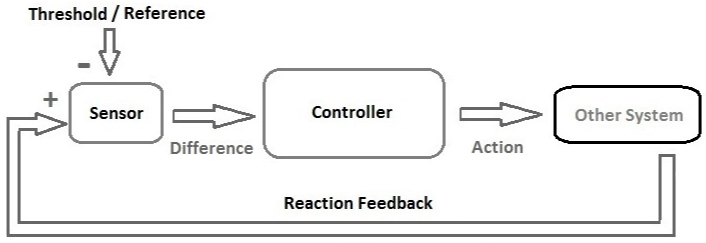
Computer & Internet Ethics

"Computer ethics raises new and unique issues in society. Because of the magnitude of the computing revolution, we have fallen behind in defining this new area of ethical study. There are invisible factors – inherent to technology-related fields – that must be considered. We must identify policy vacuums and define new policies that address ethics in a changed world." - What Is Computer Ethics? (Moor #1).
"Computer ethics is a part of practical philosophy concerned with how computing professionals should make decisions regarding professional and social conduct.[1] Margaret Anne Pierce, a professor in the Department of Mathematics and Computers at Georgia Southern University has categorized the ethical decisions related to computer technology and usage into three primary influences:[2], 1. The individual's own personal code., 2. Any informal code of ethical conduct that exists in the work place., and 3. Exposure to formal codes of ethics."- Computer ethics.
Internet Ethics today is called "Cyberethics
[that] is the philosophic study of ethics pertaining to computers,
encompassing user behavior and what computers are programmed to do, and
how this affects individuals and society. For years, various
governments have enacted regulations while organizations have defined
policies about cyberethics." - https://en.wikipedia.org/wiki/Cyberethics
You should define these three words; Computer, Internet and Cybanetics for understading both of "Computer ethics"and "Cyberethics."
i) "A computer is a machine that can be instructed to carry out sequences of arithmetic or logical operations automatically via computer programming. Modern computers have the ability to follow generalized sets of operations, called programs. These programs enable computers to perform an extremely wide range of tasks. A "complete" computer including the hardware, the operating system (main software), and peripheral equipment required and used for "full" operation can be referred to as a computer system. This term may as well be used for a group of computers that are connected and work together, in particular a computer network or computer cluster." - https://en.wikipedia.org/wiki/Computer
ii) "The Internet (or internet) is the global system of interconnected computer networks that uses the Internet protocol suite (TCP/IP) to communicate between networks and devices. It is a network of networks that consists of private, public, academic, business, and government networks of local to global scope, linked by a broad array of electronic, wireless, and optical networking technologies. The Internet carries a vast range of information resources and services, such as the inter-linked hypertext documents and applications of the World Wide Web (WWW), electronic mail, telephony, and file sharing." - https://en.wikipedia.org/wiki/Internet
iii) "Cybernetics
is a transdisciplinary approach for exploring regulatory and purposive
systems—their structures, constraints, and possibilities. The core
concept of the discipline is circular causality or feedback—that is,
where the outcomes of actions are taken as inputs for further action.
Cybernetics is concerned with such processes however they are embodied,
including in environmental, technological, biological, cognitive, and
social systems, and in the context of practical activities such as
designing, learning, managing, and conversation."- https://en.wikipedia.org/wiki/Cybernetics

Table of Contents, from Deborah G. Johnson, Keith W. Miller, Computer ethics :
analyzing information technology, 2009.
| Contents Preface vi Acknowledgments viii About the Authors viii Chapter 1 Introduction to Sociotechnical Computer Ethics Chapter Outline 1 Scenarios 2 1.1 A Virtual Rape 2 * 1.2 Surprises About Social Networking 3 * 1.3 RFID and Caring for the Elderly 4 Introduction: Why Computer Ethics? 5 The Standard Account 7 New Possibilities, a Vacuum of Policies, Conceptual Muddles 7 * An Update to the Standard Account 10 The Sociotechnical Systems Perspective 13 Reject Technological Determinism/Think Coshaping 13 * Reject Technology as Material Objects/Think Sociotechnical Systems 15 * Reject Technology as Neutral/Think Technology Infused with Value 17 Sociotechnical Computer Ethics 18 Micro- and Macro-Level Analysis 21 Return to the "Why Computer Ethics?" Question 21 Conclusion 22 * Study Questions 23 Chapter 2 Ethics and Information Technology 24 Chapter Outline 24 Introduction: "Doing" Ethics 25 Descriptive/Normative 26 * The Dialectic Method 28 * Ethics is Relative" 32 Ethical Theories and Concepts 35 Utilitarianism 35 * Intrinsic and Instrumental Value 36 * Acts versus Rules 38 Critique of Utilitarianism 39 * Case Illustration 41 * Deontological Theory 42 * Case Illustration 44 * Rights 46 * Rights and Social Contract Theory 47 * Virtue Ethics 48 * Analogical Reasoning in Computer Ethics 49 Conclusion 51 * Study Questions 51 Chapter 3 Ethics in IT-Configured Societies 53 Chapter Outline 53 Scenarios 54 3.1 Google in China: "Don't Be Evil" 54 * 3.2 Turing Doesn't Need to Know 55 3.3 Turnitin Dot Com 55 Introduction: IT-Configured Societies 55 Technology as the Instrumentation of Human Action 56 Cyborgs, Robots, and Humans 58 Three Features of IT-Configured Activities 60 Global, Many-to-Many Scope 61 Distinctive Identity Conditions 62 Reproducibility 65 IT-Configured Domains of Life 66 Virtuality, Avatars, and Role-Playing Games 66 Friendship and Social Networking 68 Education and Plagiarism Detection 70 Democracy and the Internet 72 What Is Democracy? 73 The Arguments 74 * Is the Internet a Democratic Technology? 76 Conclusion 79 Study Questions 79 Chapter 4 Information Flow, Privacy, and Surveillance 81 Chapter Outline 81 Scenarios 82 4.1 Email Privacy and Advertising 82 * 4.2 Workplace Spying: The Lidl Case 82* 4.3 Data Mining and e-Business 83 Introduction: Information Flow With and Without Information Technology 84 Why Care About Privacy? 86 No Need to Worry" 87 * The Importance of Privacy 90 * Privacy as an Individual Good 90 * Privacy as Contextual Integrity 93 Privacy as a Social Good Essential for Democracy 95 Autonomy, Democracy, and the Panoptic Gaze 96 Data Mining, Social Sorting, and Discrimination 98 Crude Categories 100 * Summary of the Arguments for Privacy and Against Surveillance 101 Is Privacy Over? Strategies for Shaping Personal Information Flow 101 Fair Information Practices 102 Transparency 104 Opt-In versus Opt-Out 104 * Design and Computer Professionals 105 * Personal Steps for All IT Users 106 * A Note on Privacy and Globalization 107 Conclusion 107 Study Questions 108 Chapter 5 Digital Intellectual Property 109 Chapter Outline 109 Scenarios 110 5.1 Obtaining Pirated Software Abroad 110 * 5.2 Free Software that Follows Proprietary Software 110 * 5.3 Using Public Domain Software in Proprietary Software 111 Introduction: The Complexities of Digital Property 111 Definitions 112 Setting the Stage 113 Protecting Property Rights in Software 114 Copyright 114 Trade Secrecy 118 Patent Protection 119 Free and Open Source Software 122 The Philosophical Basis of Property 124 Natural Rights Arguments 124 Critique of the Natural Rights Argument 125* A Natural Rights Argument Against Software Ownership 127 PS Versus FOSS 128 Is it Wrong to Copy Proprietary Software? 129 Breaking Rules, No Rules, and New Rules 133 Conclusion 135 * Study Questions 136 Chapter 6 Digital Order 137 Chapter Outline 137 Scenarios 137 6.1 Bot Roast 137 * 6.2Wiki Warfare 138 * 6.3Yahoo and Nazi Memorabilia 139 Introduction: Law and Order on the Internet 140 Sociotechnical Order 142 Online Crime 143 Hackers and the Hacker Ethic 145 Sociotechnical Security 150 Who Is to Blame in Security Breaches? 152 Trade-Offs in Security 153 Wikipedia: A New Order of Knowledge Production 154 Freedom of Expression and Censorship 156 John Stuart Mill and Freedom of Expression 157 Conclusion 160 * Study Questions 161 Chapter 7 Professional Ethics in Computing 162 Chapter Outline 162 Scenarios 163 7.1 Software Safety 163 * 7.2 Security in a Custom Database 164* 7.3 Conflict of Interest 164 Introduction: Why Professional Ethics? 165 Therac-25 and Malfunction 54 165 The Paradigm of Professions 167 Characteristics of Professions 168 Sorting Out Computing and its Status as a Profession 171 Mastery of Knowledge 171 Formal Organization 172 Autonomy 173 Codes of Ethics 174 The Culture of Computing 175 Software Engineering 176 Professional Relationships 178 Employer-Employee 178 Client-Professional 180 Other Stakeholders-Professional 182 Professional-Professional 183 Conflicting Responsibilities 184 A Legal Perspective on Professionalism in Computing 185 Licensing 185 Selling Software 186 Selling-Buying and the Categorical Imperative 187 Torts 188 Negligence 188 A Final Look at the State of the Profession 190 Guns-for-Hire or Professionals 190 Efficacy, Public Trust, and the Social Contract 191 Conclusion 192 * Study Questions 193 *** Websites 195 References 196 Index 198 |
Links with password
Bibliography
other informations
